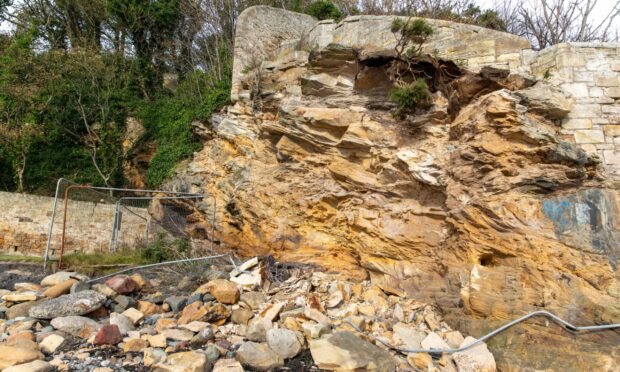Transport chiefs in Fife are confident the region will be able to handle whatever winter has to throw at the kingdom as temperatures tumbled this week.
With forecasters fearing Scotland could be in for one of its coldest winters in almost a decade, people on the east coast are bracing themselves for the mercury to fall as low as -10C as bitterly cold Arctic air is dragged in from the north.
The bleak outlook painted by some about the months ahead sparked memories of 2010 when Fife’s salt stock completely ran out, meaning gritters were unable to treat icy roads for a time before emergency deliveries replenished supply.
However, Fife Council is well-prepared for any prolonged spell of wintry weather and currently has more than 20,000 tonnes of salt at its disposal — enough for around 150 full treatments on the kingdom’s primary routes.
Ian Smart, roads operations service manager, said: “In Fife, we’re expecting cold temperatures over the next two days, with air and surface temperatures significantly below freezing.
“We’ve been aware of this since the start of this week. We know it’s going to be slightly colder than usual. Our full winter arrangements are already in place, and our teams will deal with this as ‘business as usual’.
“The council has been busy planning ahead for winter and is committed to keeping the kingdom moving despite the weather.”
Gritting teams across Fife have been told to closely monitor conditions as this week’s cold snap bites, although it is hoped temperatures will rise slightly towards the end of the week.
Salting of all primary routes will be carried out if necessary, with one full treatment covering 1418km, around 59% of Fife Council’s road network.
That process is usually completed within three hours.
Mr Smart added: “Longer term forecasts give us advance warning of expected conditions. Actual conditions are monitored 24 hours every day to ensure that we take any action required at the right time.
“Standby rotas are already in place and have been since start of November. We have already been out to treat primary roads 16 times since start of standby.”










